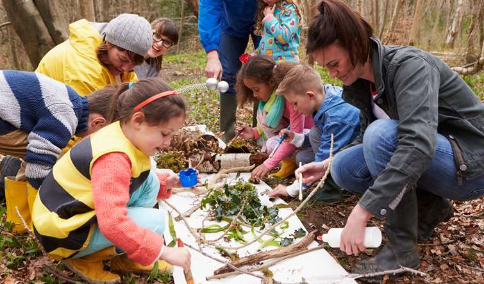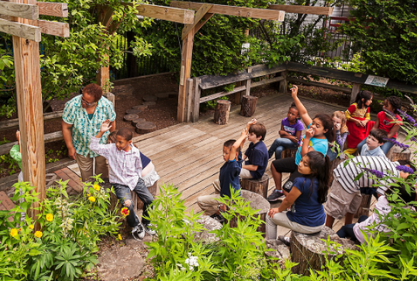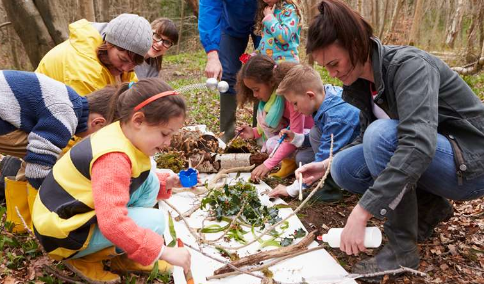
Forest School: A natural approach to learning
In a world dominated by technology and indoor activities, the Forest School movement is gaining momentum as a breath of fresh air, quite literally. This innovative educational approach, rooted in the principles of outdoor learning, is redefining the way we perceive education. Forest School goes beyond traditional classrooms, encouraging children to explore, play, and learn in the heart of nature. In this blog, we will delve into the philosophy behind Forest School, its key principles, and the numerous benefits it offers to both children and the environment.
Understanding Forest School:
Forest School is an educational philosophy that originated in Scandinavia in the 1950s. The concept gained popularity in the UK in the 1990s and has since spread to various parts of the world. The core idea revolves around providing children with regular opportunities to learn and explore in a natural, outdoor environment, typically a forest or woodland.

Key Principles of Forest School:
Child-Led Learning: Forest School places a strong emphasis on child-led learning, allowing children to take the reins of their education. This means that activities are driven by the interests and curiosities of the children, fostering a sense of autonomy and intrinsic motivation.
Outdoor Exploration: Nature becomes the classroom in Forest School. Children are encouraged to explore and interact with the natural environment, promoting a deep connection to the outdoors. This hands-on experience enhances their understanding of the world around them and instills a sense of environmental stewardship.
Holistic Development: Forest School recognizes the importance of holistic development. Beyond academic skills, the focus is on nurturing social, emotional, and physical well-being. Activities often involve teamwork, problem-solving, and physical challenges that contribute to a well-rounded education.
Risk-taking and Resilience: In a controlled and supervised environment, Forest School allows children to engage in activities that involve an element of risk. This not only builds resilience but also teaches them to assess and manage risks independently, a valuable life skill.

Benefits of Forest School:
Enhanced Well-being: Spending time in nature has been linked to improved mental and physical well-being. Forest School provides an antidote to the stresses of modern life, offering a calming and rejuvenating environment for both children and educators.
Increased Confidence: Through hands-on experiences and overcoming challenges, children at Forest School develop a sense of accomplishment and increased self-confidence. This newfound confidence extends to various aspects of their lives.
Environmental Awareness: By immersing children in nature, Forest School fosters a deep appreciation for the environment. This connection encourages a sense of responsibility and care for the planet from an early age.
Developing Life Skills: Forest School activities, often centered around teamwork and problem-solving, contribute to the development of essential life skills. Children learn to communicate effectively, collaborate, and adapt to various situations.
Conclusion:
Forest School is more than just an educational trend; it is a paradigm shift in how we approach learning. By embracing the natural world as a classroom, children are not only gaining academic knowledge but also developing a profound connection to the environment and crucial life skills. As we navigate an increasingly digital and fast-paced world, Forest School stands as a testament to the enduring value of nature in education, reminding us that sometimes, the best lessons are learned amidst the rustling leaves and towering trees.


Submit your comment